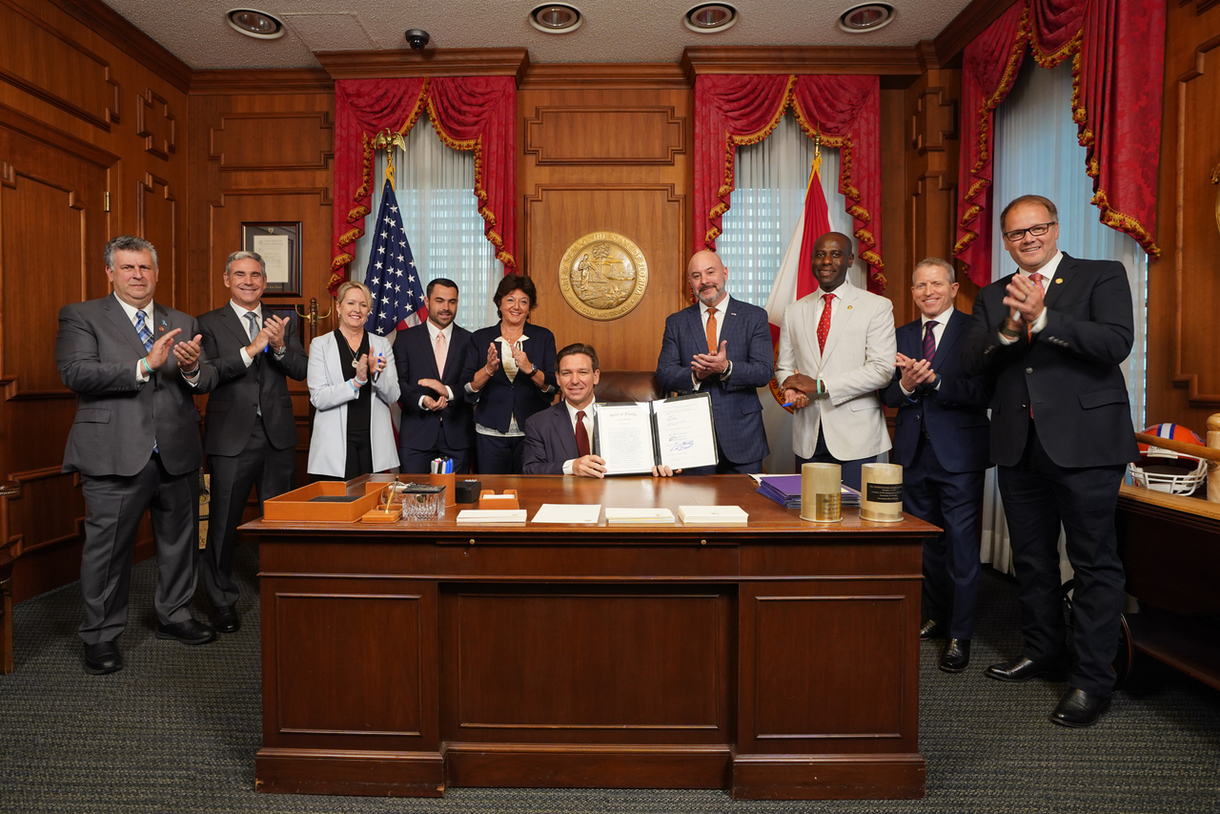
Willie R. Tubbs, FISM News
[elfsight_social_share_buttons id=”1″]
Thursday, six days after the Florida legislature sent it to his desk, Gov. Ron DeSantis signed into law a bill that will allow a jury to sentence a person to death with an 8-to-4 vote.
Previously, Florida law required a unanimous jury decision in order for a convicted person to receive the death penalty.
Importantly, the 8-to-4 supermajority standard only applies to the sentencing phase of a trial. A jury must still vote unanimously that a defendant is guilty of a crime for a conviction to be registered.
DeSantis was joined at the signing by family members of some of the victims of the 2018 shooting at Marjory Stoneman Douglas High School in Parkland. The convicted murderer in that case, Nikolas Cruz, was spared the death penalty in that case when three jurors voted he should be sentenced to life without the possibility of parole.
The story that emerged at the time, per a CNN report, was that a single juror refused, under any circumstance, to vote for a death sentence and was eventually joined by two more jurors in that stance.
“Once a defendant in a capital case is found guilty by a unanimous jury, one juror should not be able to veto a capital sentence,” DeSantis said in a statement. “I’m proud to sign legislation that will prevent families from having to endure what the Parkland families have and ensure proper justice will be served in the state of Florida.”
The fact that, even after a premeditated and heinous rampage that left 17 people dead and scores more forever scarred, Cruz will not be, and can now never be, sentenced to death resonated poorly with enough Floridians that conservative lawmakers were able to push the legislation through to fruition.
“A few months ago, we endured another tragic failure of the justice system,” Ryan Petty, the father of one of the victims, said. “Today’s change in Florida law will hopefully save other families from the injustices we have suffered. I’d like to thank Governor DeSantis and the Florida Legislature for this important legislation.”
With the creation of the new law, Florida became the state with the lowest death penalty threshold, surpassing Alabama, where a 10-to-2 jury vote is sufficient.
In all likelihood the new law will be challenged in court. Florida’s previous unanimous verdict standard was created in 2017 after the Supreme Court struck down the previous system, one in which a judge determined if a person’s crime warranted death.
“Florida already has the highest number of death row exonerations in the country,” Tiffani Lennon, executive director of the ACLU of Florida, said in a statement. “With this bill and others, Florida is rapidly widening the net of who will be sent to death row with absolutely no consideration for the flaws that will inevitably lead to the harm of more innocent people. The bills coming out of this legislative session do not make Florida safer. Instead, they will continue to strain a severely broken system.”
Conservative lawmakers and some victims’ families say the old system was the problem for the people most harmed by the violent acts of criminals.
“This bill is about victims’ rights, plain and simple,” Tony Montalto, another victim’s father, said. “It allows the victims of heinous crimes a chance to get justice and have the perpetrators punished to the full extent of the law.”
State Rep. Bernie Jacques said, “Florida will no longer allow a small handful of activist jurors to derail the full administration of justice when individuals are found guilty beyond a reasonable doubt and meet the qualifications for the death penalty,”
